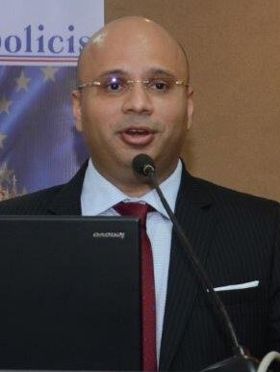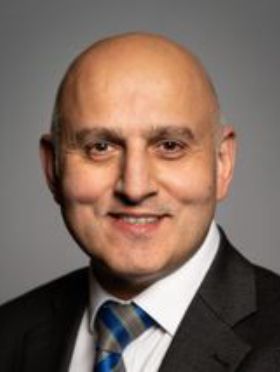What is power of attorney and how does it work?

A Power of Attorney (PoA) is a legal arrangement that allows someone to make decisions on your behalf when you are unable to do so. Whether due to illness, accident, or extended absence, having a properly arranged PoA ensures your affairs are managed according to your wishes. This comprehensive guide explores the various aspects of PoA in the UK, but given the complexity and importance of these legal matters, it is advisable to seek professional legal counsel.

Key Takeaway: Who can make decisions about your life if you cannot?
Do not wait until it is too late – learn about Power of Attorney now!
What is a Power of Attorney?
A Power of Attorney is a legal document that gives someone you trust the authority to make decisions and act on your behalf when you are unable or unwilling to do so yourself.
This powerful legal arrangement consists of:
- The Donor (or Grantor): The person giving away their decision-making rights.
- The Attorney(s): The trusted person(s) chosen to act on the donor’s behalf.
- The Powers Granted: Can cover specific financial decisions or extend to all health and property matters.
- The Timeframe: Either temporary through an ordinary Power of Attorney or permanent via a lasting Power of Attorney.
- The Territory: Separate legal frameworks exist for England, Wales, and Scotland, with different requirements and costs.
The different types of Power of Attorney in the UK
The UK legal system recognizes three main types of PoA, each designed for specific circumstances and levels of authority:
- Lasting Power of Attorney health and welfare
This comprehensive arrangement covers all aspects of your personal and medical welfare, allowing your attorney to make decisions about:
- Daily routine choices: Deciding on your diet, dress, and social activities.
- Medical decisions: Authority to consent or refuse treatments on your behalf.
- Social care: Managing relationships with healthcare providers and social services.
- Care arrangements: Choosing care homes, in-home care services, or living arrangements.
- Life-sustaining treatment: Making critical decisions about life-support and emergency care.
- Lasting Power of Attorney property and financial affairs
This type gives your attorney control over your financial matters and property decisions, including:
- Tax affairs: Handling tax returns and dealing with HMRC.
- Property transactions: Buying, selling, or renting property on your behalf.
- Bill payments: Managing household expenses, care costs, and other financial obligations.
- Investment decisions: Making decisions about stocks, shares, and other financial investments.
- Bank account management: Operating your accounts, managing investments, and handling pensions.
- Ordinary Power of Attorney
This temporary arrangement is ideal for short-term situations when you still have mental capacity:
- Temporary arrangements: Perfect for hospital stays or overseas travel.
- Specific transactions: Handling one-off property sales or business deals.
- Time-limited authority: Can be set for a fixed period, like recovering from surgery.
Setting up your Power of Attorney
Understanding how to get Power of Attorney UK has become more streamlined with the introduction of Lasting Power of Attorney online services. The process involves these essential steps:
- Choose Your Attorney(s): Your attorney must be at least 18 years old, mentally capable, and can be trusted family members, friends, or professional advisers, though they cannot be bankrupt if managing financial decisions. You can choose to appoint multiple attorneys as backup for added security.
- Complete Required Documentation: The process begins with completing the appropriate Power of Attorney Form (LP1F for finance or LP1H for health), where you will specify your instructions, restrictions, how attorneys should act (jointly or separately), when powers activate, and your preferences for future care.
- Arrange Proper Witnessing: Who can witness a Power of Attorney signature UK requires a certificate provider (either a solicitor, doctor, or someone who knows you well), two independent witnesses for your signature, signatures from all attorneys, and potentially a notary public for overseas use.
- Register Your Power of Attorney: Submit your completed forms to the Office of Public Guardian along with the registration fee, allowing 8-10 weeks for processing before receiving your sealed and registered documents.
- Notify Relevant Parties: Once registered, provide certified copies to all relevant organizations including banks, healthcare providers, and utility companies.
Costs of Power of Attorney
The Power of Attorney cost varies depending on your location and specific needs, breaking down into several key components:
- Registration Fees: Registration fees are £82 per document in England and Wales, while the Power of Attorney Scotland cost is £85, with reductions available for those on benefits or low income.
- Professional Fees: Power of Attorney solicitors charge £300-£800 per document, including legal advice, form completion and registration.
- Additional Costs: Expect to pay £12-£20 for each certified copy of your Power of Attorney document, plus notary fees of £70-120 if needed internationally.
- Amendment Costs: How much does it cost to revoke a Power of Attorney involves a court fee of £200, plus any solicitor fees for assistance.
Rights, responsibilities, and limitations of a Power of Attorney
For those thinking “I have Power of Attorney now what,” this comprehensive breakdown outlines the key aspects of attorney powers and responsibilities:
- Attorney’s Rights: As an attorney, you have authority to manage bank accounts and investments, buy or sell property, handle bills and taxes, make restricted gifts, and if granted Lasting Power of Attorney health and welfare, make healthcare decisions.
- Attorney’s Core Responsibilities: Your duties include acting in the donor’s best interests, maintaining accurate transaction records, keeping finances separate, supporting the donor’s decision-making when possible, maintaining confidentiality, and considering their past and present wishes.
- Key Limitations: Your cannot make large gifts without Court approval, create a Will, exceed your granted authority, or delegate powers without authorization. Importantly, does Power of Attorney end at death? Yes – all powers cease immediately upon the donor’s death.
- Who Has Oversight: Who can override a Power of Attorney UK? The Court of Protection can remove attorneys for misconduct, while the Office of Public Guardian monitors conduct. The donor can revoke powers while mentally capable, and other attorneys or family members can challenge decisions through the Court.
Power of Attorney in special circumstances
Certain situations require special attention and specific arrangements when setting up or using Powers of Attorney:
- Dementia and Mental Capacity: Power of Attorney dementia arrangements must be completed while the person still has mental capacity, requiring early setup after diagnosis and professional assessment to ensure all future care preferences are properly documented.
- Emergency Situations: When immediate action is needed, an Ordinary Power of Attorney can provide temporary coverage, while emergency Court of Protection orders are available if no power of attorney exists and urgent decisions are required.
- International Requirements: Cross-border effectiveness of a Power of Attorney document often requires additional certification, local legal advice, and proper registration with relevant foreign authorities to ensure the power is recognized internationally.
- Complex Family Situations: Challenging family dynamics may require multiple attorneys with clearly defined roles, potentially including professional attorneys to ensure impartial decision-making and proper documentation of all actions taken.
Do I need a lawyer for Power of Attorney?
While Power of Attorney online services offer a simpler path, certain situations warrant professional guidance:
- High-Value Estates: Professional advice is essential when dealing with substantial assets, investments, or property portfolios that require specialized protection.
- Healthcare Decisions: Setting up Lasting Power of Attorney health and welfare benefits from legal expertise to ensure your medical preferences are clearly documented.
- Challenging Relationships: Consider Power of Attorney solicitors when navigating complex family dynamics or potential conflicts between future attorneys.
- Commercial Interests: Business owners need careful structuring of their legal Power of Attorney to protect both personal and business assets.
- Overseas Connections: International assets or residency require expertise to ensure your Power of Attorney document is internationally viable.
FAQs
- Which type of Power of Attorney do I need? Types of Power of Attorney include Lasting Power of Attorney property and financial affairs for money, medical Power of Attorney for healthcare, or Ordinary Power of Attorney for temporary needs.
- Do I need a solicitor to draw up a power of attorney? No, you can set up power of attorney online, but complex estates benefit from professional guidance to avoid costly mistakes.
- Can I sell my mum’s house with power of attorney? Yes, with Lasting Power of Attorney property and financial affairs, but you must act in her best interests and keep detailed records of the sale.
- Can I withdraw money if I have power of attorney? Yes, but only for the donor’s benefit. Your responsibilities involve maintaining strict financial records and acting in the donor’s interests.
- What decisions cannot be made by power of attorney? An attorney cannot make a will, vote, marry/divorce on behalf of the donor, or make any decisions after the death of the grantor.
- Can a power of attorney transfer money to their own account? Only if specifically authorized and documented for legitimate expenses.
- How much does a solicitor charge for power of attorney? Power of Attorney solicitors typically charge £300-£800 per document, while Power of Attorney Scotland cost differs slightly.
- Is it worth paying for power of attorney? health Power of Attorney and living Power of Attorney are essential if capacity is lost, especially for Power of Attorney dementia.
- Who is the best person to be your power of attorney? Choose someone trustworthy, competent with finances, and willing to make difficult decisions. This could be family, friends, or professionals depending on your circumstances.
- What will happen if I don’t set up a Power of Attorney? Without a POA, the Court of Protection must appoint a deputy – a lengthy and expensive process that leaves you with no say in who has Power of Attorney after death if there is no will.
- Can my mother change her will if I have Power of Attorney? No – this remains her right if she has mental capacity.
- Who has Power of Attorney after death if there is no will? No one – the power ends at death, and intestacy rules apply.
Setting up a Power of Attorney is a crucial step in protecting your future. Whether through Power of Attorney online or Power of Attorney solicitors, acting early ensures your wishes are respected and your affairs properly managed when needed most.
How to get Power of Attorney?
Qredible’s network of experienced Power of Attorney solicitors can guide you through every stage, from choosing the right type to registration, ensuring your interests are protected for the future.
KEY TAKEAWAYS
- Power of Attorney allows someone you trust to make decisions on your behalf when you are unable to do so, with different types available for financial and health matters.
- Setting up Power of Attorney costs £82 per document in England and Wales, with solicitor fees ranging from £300-£800 for professional guidance.
- Your attorney must always act in your best interests, keep accurate records, and cannot make certain decisions like creating wills or voting on your behalf.
- Special circumstances like dementia, international assets, or complex family situations may require additional legal considerations.
- Acting early is crucial, as Power of Attorney must be arranged while you have mental capacity to make decisions.
Do you need a solicitor?
Find a solicitor on Qredible in just a few easy steps
London Solicitor
Stoke-on-Trent Solicitor
Cardiff Solicitor
Wrexham Solicitor
Manchester Solicitor
London Solicitor
















